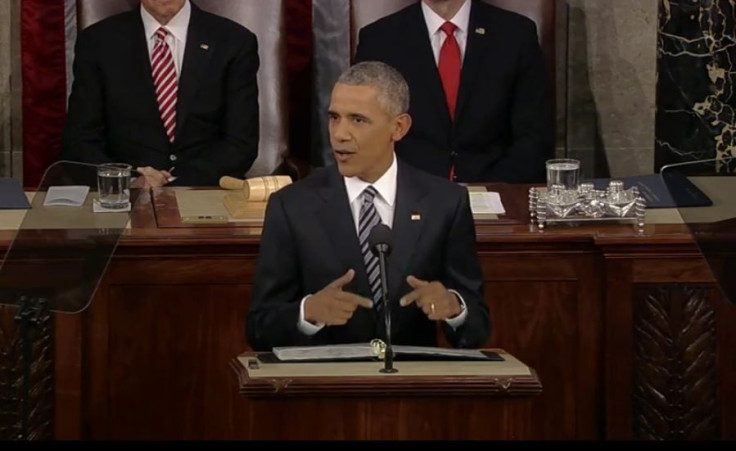Obama Wants To Cure Cancer, Announces New “MoonShot” Led By Biden

In his final State of the Union address, President Obama promised to undertake a new national effort to cure cancer, a “moonshot” with Vice President Biden in charge of “mission control.”
“For the loved ones we’ve all lost, for the family we can still save, let’s make America the country that cures cancer once and for all,” Obama said. His initiative will make use of a $2 billion increase in funding approved by Congress for the National Institutes of Health.
Mission Control
In a blog post following the president’s address, Biden wrote that he will travel to the University of Pennsylvania’s Perelman School of Medicine on Friday to continue the national dialogue with physicians and researchers. Next week he plans to meet with international experts at the World Economic Forum in Davos, Switzerland and later this month he will convene the first of several meetings with cabinet secretaries and heads of agencies to discuss federal investment in cancer research.
“From my own personal experience, I’ve learned that research and therapies are on the cusp of incredible breakthroughs,” wrote Biden, whose 46-year old son died of brain cancer last year.
Over the past few months, the vice president met with nearly 200 of the world’s top cancer physicians, researchers, and philanthropists, he says. These efforts came to fruition earlier this week when a coalition of leaders within Pharma, Biotech, academia, the insurance industry, and the oncology community launched the “Cancer Moonshot 2020” program.
Patrick Soon-Shiong, billionaire chairman and chief executive officer of NantHealth, formed this “unprecedented collaboration” to accelerate the development of immunotherapy as the standard of care for cancer patients, a press release stated.
What is Immunotherapy?
Immunotherapy combines more than one highly specialized drug to fortify the body’s immune system and enable its disease-fighting cells to attack tumors. Unlike current cancer treatments, immunotherapy is designed to harness and orchestrate all the elements of the immune system (including dendritic cells, T cells, and NK cells). As Soon-Shiong explained at last year’s Forbes Health Summit, current therapies simply attack a targeted genetic mutation.
“The [incorrect] assumption we made is that cancer was a form of a single mutation, a single gene, or single clone,” said Soon-Shiong.
In reality, he explained, there are thousands of mutated genes some awake, others asleep. When a patient is treated with a particular drug, the sleeping mutated genes awaken; and, though a single drug may eliminate a single mutation, others pop up as treatment (and the disease) progresses. Instead of dropping a single bomb, then, immunotherapy delivers a series of precision drone attacks: personalized medicine.
No longer will oncologists specialize in prostate cancer, say, or breast cancer, instead they will treat patients whose tumors share genetic characteristics, no matter where in the body they are located.
Cancer Moonshot 2020
As members of the new Cancer Moonshot 2020 coalition, corporations, and other institutions — including Celgene Corp., Amgen Inc., Independence Blue Cross, Allscripts, Blackberry, Massachusetts General Hospital, and Johns Hopkins University — will join forces to provide access to technologies and resources, including more than 60 novel and approved drugs.
Specifically, the coalition will design, initiate, and complete clinical trials at all stages of cancer in up to 20 tumor types in as many as 20,000 patients by year 2020. Known as QUILT (QUantitative Integrative Lifelong Trial), the program will test combinations of vaccines, cell-based immunotherapy, metronomic chemotherapy, low dose radiotherapy, and immunomodulators with the goal of achieving long-lasting remission in the patients. The 20,000 patients will have their tumors genetically sequenced as part of their contribution to QUILT; tumor types will include breast, lung, prostate, ovarian, brain, head and neck, multiple myeloma, sarcoma, and pancreatic cancer, among others.
“There are unique times in history when events and advancements in technology converge to elicit a quantum leap in medical care,” said Soon-Shiong in a statement. Our cancer-free future beckons.
Published by Medicaldaily.com



























